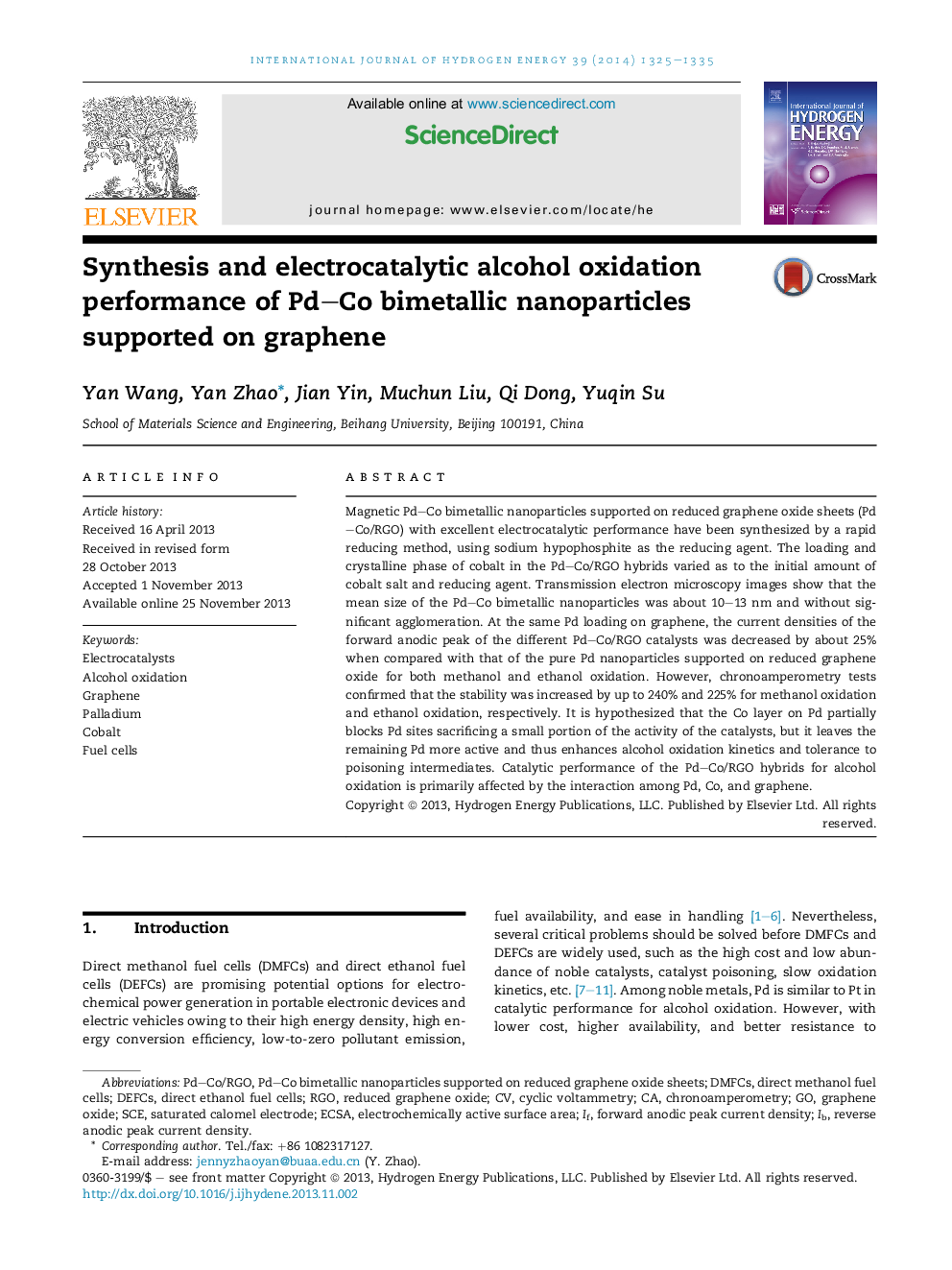| Article ID | Journal | Published Year | Pages | File Type |
|---|---|---|---|---|
| 7720851 | International Journal of Hydrogen Energy | 2014 | 11 Pages |
Abstract
Magnetic Pd-Co bimetallic nanoparticles supported on reduced graphene oxide sheets (Pd-Co/RGO) with excellent electrocatalytic performance have been synthesized by a rapid reducing method, using sodium hypophosphite as the reducing agent. The loading and crystalline phase of cobalt in the Pd-Co/RGO hybrids varied as to the initial amount of cobalt salt and reducing agent. Transmission electron microscopy images show that the mean size of the Pd-Co bimetallic nanoparticles was about 10-13Â nm and without significant agglomeration. At the same Pd loading on graphene, the current densities of the forward anodic peak of the different Pd-Co/RGO catalysts was decreased by about 25% when compared with that of the pure Pd nanoparticles supported on reduced graphene oxide for both methanol and ethanol oxidation. However, chronoamperometry tests confirmed that the stability was increased by up to 240% and 225% for methanol oxidation and ethanol oxidation, respectively. It is hypothesized that the Co layer on Pd partially blocks Pd sites sacrificing a small portion of the activity of the catalysts, but it leaves the remaining Pd more active and thus enhances alcohol oxidation kinetics and tolerance to poisoning intermediates. Catalytic performance of the Pd-Co/RGO hybrids for alcohol oxidation is primarily affected by the interaction among Pd, Co, and graphene.
Keywords
Related Topics
Physical Sciences and Engineering
Chemistry
Electrochemistry
Authors
Yan Wang, Yan Zhao, Jian Yin, Muchun Liu, Qi Dong, Yuqin Su,
